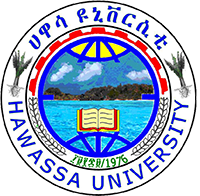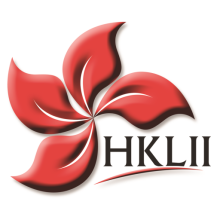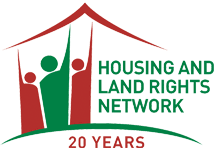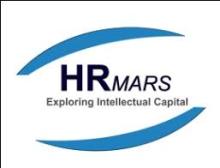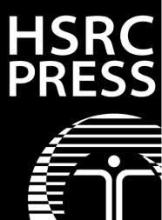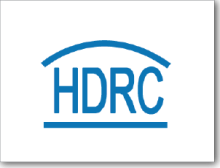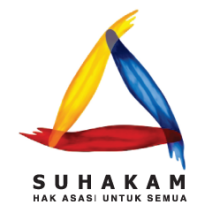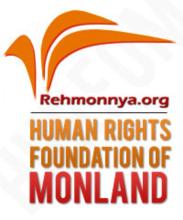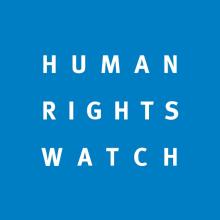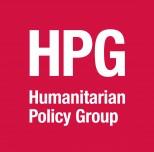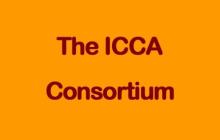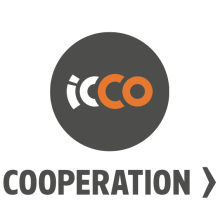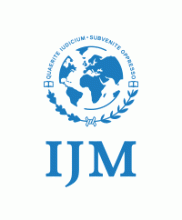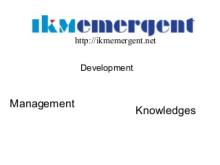Le bibliothèque du foncier comprend des ressources provenant de plus de 1 890 fournisseurs d'informations nationaux et internationaux. Découvrez les organisations et les institutions qui utilisent le Land Portal pour partager leurs recherches, leurs données et leurs histoires en libre accès.
Hawassa University
Hawassa university is a public university in Ethiopia.
Hawassa University (or HU) was established at Hawassa in April 2000. Since 1976 the colleges of HU had been operational starting with the College of Agriculture. The university was formed by merging three colleges in southern Ethiopia: Awassa College of Agriculture, Wondogenet College of Forestry and Dilla College of Teacher Education and Health Sciences.
Source: Wikipedia (consulted d.d. October 12th 2017)
Heinrich Böll Foundation
The Heinrich Böll Foundation
- is a catalyst for green visions and projects, a
- think tank for policy reform, and an international network
- is closely affiliated to the German Green Party
- promotes the development of democratic civil society at home and abroad
- defends equal rights and equal opportunities regardless of gender, sexual orientation,
- religion, ethnicity, or nationality
- supports cultural projects as part of our civic education programmes
- assists gifted, socially and politically active students and graduates in Germany and abroad
- co-operates with state foundations in all of the 16 German states
- is mostly financed through public funds (currently around 45 million euros per year)
The primary objectives guiding our work are
- establishing democracy and human rights
- fighting against environmental degradation
- safeguarding everyone’s rights of social participation
- supporting non-violent conflict resolution
- defending the rights of individuals
Helvetas
HELVETAS Swiss Intercooperation (or Helvetas in brief) is a Swiss association for international cooperation. It was founded in 1955 as the first private organization for development co-operation in Switzerland.
Helvetas is an international network of independent affiliate member organisations working in the field of development cooperation and emergency response. The main focus of our work is on international projects.
Helvetas is committed to a just world in which all men and women determine the course of their lives in dignity and security, using environmental resources in a sustainable manner. Helvetas is an independent organization for development based in Switzerland with affiliated organizations in Germany and the United States. Helvetas supports poor and disadvantaged women, men and communities in about thirty developing and transition countries in Africa, Asia, Latin America and Eastern Europe.
Helvetas is active in five working areas: water and infrastructure, skills development and education, sustainable and inclusive economies, governance and peace and environment and climate change. Helvetas engages in emergency relief, reconstruction and rehabilitation. In addition to rural areas, Helvetas is increasingly involved in urban development and is focusing its work on young women and men.
Hérodote, Revue de géographie et de géopolitique
La revue Hérodote, trimestrielle, s’efforce de promouvoir une géographie d’action et une conception nouvelle et globale de la géopolitique.
À travers l’analyse des phénomènes politiques et de la méthode de raisonnement géographique, la revue Hérodote s’est affirmée comme la principale revue de référence dans le champs de la géographie et de la politique, et a joué un rôle essentiel dans la réintroduction en France du terme géopolitique pour l’analyse des situations contemporaines. Les numéros d’Hérodote, thématiques, abordent l’analyse des relations entre États (géopolitique externe), ou les rivalités de pouvoir à l’intérieur des États (géopolitique interne), y compris les États européens et la France, qui figure régulièrement dans les thèmes abordés. La plupart des articles comportent des cartes. Hérodote fait appel à des spécialistes reconnus et publie des travaux de jeunes chercheurs formés à l’Institut français de géopolitique, créé par Béatrice Giblin à l’université Paris-VIII.
La revue Hérodote a été fondée en 1976 par Yves Lacoste.
HLH Group Unlimited
HLH was founded in Singapore since 1988, from a sole proprietorship providing construction services, it has become a regional property developer and producer of raw and processed agricultural products. It has been listed on the mainboard of Singapore Stock Exchange since 21 June 2000.
The Group operates two core business segments: Property Development and Agriculture.
Since the establishment of the Group’s Agriculture Division in Cambodia in 2008, it has become one of the largest privately owned Agriculture Park in the Kingdom with land size approximately 11,000 hectares. The Agriculture Park is focused on agricultural investment & development, the cultivation of cassava and sugarcane through collaboration with joint-operation partners. The Agriculture Park will also have a designated area suitable for Aquaculture and Livestock Farming. A New Cassava Starch Factory was added in Q2 of 2016, it is capable of producing around 120 tons of cassava starch daily.
The Group’s Property Division, which has completed numerous projects in Singapore since 2003, ventured into the Cambodia’s Property Market in 2015 with the launch of its residential brand “CAMHOMES”. The Division also unveiled its first overseas mixed development project called D’Seaview which comprises 737 residential units and a further 64 commercial units. Under the “CAMHOMES” Brand, the Division’s objective is to launch more high quality housing developments in Sihanoukville, Siem Reap and Phnom Penh.
Hong Kong Legal Information Institute
The Hong Kong Legal Information Institute (HKLII - pronounced 'H K Lee') is a free access legal information system developed and jointly operated by the University of Hong Kong Department of Computer Science and Faculty of Law, with the kind assistance of the Australasian Legal Information Institute (AustLII).
HKLII's mission is to provide free access to primary legal materials from Hong Kong (and some publicly available secondary materials) by use of technology that is both easy to use and powerful in the diversity of materials that it covers.
The system is based on data obtained from sources in Hong Kong and the region. Mark-up, processing, database structure, search engine facilities, and some other aspects of technical infrastructure are adapted from software provided by AustLII. The Hong Kong, China and Taiwan pages (and some subject pages) of the World Law index are jointly prepared by HKU Faculty of Law and AustLII. The day to day operation of HKLII is carried out by HKU Libraries. The overall facility is managed jointly by HKU Libraries and Faculty of Law.
Horizon Research Publishing Corporation
Horizon Research Publishing(HRPUB) is a worldwide open access publisher serving the academic research and scientific communities by launching peer-reviewed journals covering a wide range of academic disciplines. As an international academic organization for researchers & scientists, we aim to provide researchers, writers, academic professors and students the most advanced research achievements in a broad range of areas, and to facilitate the academic exchange between them .
Compliant with open access policies, published materials can be copied and distributed without obtaining permission as long as a correct citation to the original publication is given. We are committed to the advancement and applications of the science through our publications. At Horizon Research Publishing, we want to ensure that your publishing experience goes as smoothly as possible so that you can focus on what really counts .
Housing and Land Rights Network
Housing and Land Rights Network (HLRN), based in New Delhi, India, works for the recognition, defence, promotion, and realization of the human rights to adequate housing and land, which involve gaining a safe and secure place for all individuals and communities, especially marginalized communities, to live in peace and dignity. Registered as an Indian charitable trust, HLRN is an independent organization (and not affiliated with any other organization of a similar name) and works on research, education, and advocacy related to housing and land rights. A particular focus of our work is on promoting and protecting the equal rights of women to adequate housing, land, property, and inheritance. We aim to achieve our goals through advocacy, research, human rights education, and outreach through network-building at local, national, and international levels.
HRMARS
Our Purpose
Human Resource Management Academic Research Society is an academic research based organization works under Knowledge Words Publications. HRMARS aims to identifying, exploring and nurturing intellectual human capital in the fields of Education & Business Management, Social Sciences & Humanities and inclined to attain a significant place in the world of academic research by its commendable activities. Our holistic endeavor includes the establishment and promotion of academic/professional researchers/students and their valuable contributions by providing them an electronic platform where they can publish their researches and contributions in order to have larger readership. HRMARS seeks an effectual role to play in the development of training, research, leadership and knowledge management skills not only among its members but also in its readers so that society could enable the transfer of knowledge among world’s intellectual human capital. We invite you to join our purpose and to make it more strengthen so that this noble cause could spread in its all webs.
HSRC Press
The HSRC Press is a non-profit publisher committed to the dissemination of high quality social science publications, in print and electronic form. The HSRC Press is a hybrid press, with a mandate to disseminate Human Sciences Research Councilresearch output and other valuable social science research. It supports the social science research community through a strong commitment to ‘opening access to quality social science in Africa’.
Some of our distinguishing features include:
- Free access to information via our open access electronic publishing model;
- Our print publications do not go ‘out of print’ when market demand drops; instead our electronic publishing model enables us to archive material and supply copies in small quantities;
- Our print-based publications are significantly more affordable as the sale prices for print based publications do not include profit margins;
- Unusual attention is paid to each publication we produce as we are not constrained by the commercial demand of publishing a large numbers of titles annually;
- The formal peer-review process guarantees the highest academic quality.
The Press has a very active local and international marketing programme, in addition to collaborating with foreign publishers on specific titles.
Huairou Commission
Mission
The Huairou Commission develops strategic partnerships and linkages among grassroots women’s organizations, advancing their capacity to collectively influence political spaces on behalf of their communities and enhance their sustainable, resilient community development practices.
Description
The Huairou Commission is a global membership and partnership coalition that empowers grassroots women's organizations to enhance their community development practice and to exercise collective political power at the global level.
Driven by grassroots women's organizations from around the world, the members and partners of the Huairou Commission believe it is in the best interest of local communities and the global development field for grassroots women leaders to expand their participation and leadership in community development work on the issues that affect their daily lives. Huairou Commission members and partners believe grassroots women's participation in local to global decision-making is a reliable route to achieving gender equitable, pro-poor policies and investments.
The Huairou Commission is structured as a global membership coalition of women's networks, non governmental and grassroots women's organizations in more than 50 countries. HC has institutional and individual partners who share our political vision and commit to concrete, ongoing work with the Huairou Commission, leveraging and sharing their credibility, information and resources to advance grassroots women's position and priorities. HC establishes and models transformative partnerships between grassroots women and professionals.
Human Development Research Centre
Human Development Research Centre (HDRC), established in 1999, is a leading multidisciplinary research-cum-action organization in Bangladesh. HDRC, through a team of multidisciplinary experts—comprised permanent research staff and a pool of external experts— has been credited with over 200 completed studies by its name.
HDRC’s major areas of research are—Health & Family Planning, Child & Maternal Issues, Livelihood & Food Security, Adolescent & Youth, Water-Sanitation, Poverty, Land Issues, Indigenous Peoples in Hills and Plains, Public Financing, Management Accounting, Energy economics (focusing Rural Electrification), Migration & Remittances, Tobacco Economics, Governance & Decentralization, Unit Cost/Value for Money, Value Chain Analysis, and Gender.
Large scale primary data collection, analytical ability, statistical analysis, policy research, research-based advocacy, and report writing both in English and Bangla are core skills of HDRC. Regarding primary data collection—HDRC is seasoned in covering hard-to-reach areas and indigenous comminutes using both paper-based and computer-based survey formats.
Human Ecology
ISSN: 0300-7839 (Print) 1572-9915 (Online)
Description
Human Ecology: An Interdisciplinary Journal publishes papers probing the complex and varied systems of interaction between people and their environment.
Contributions examine the roles of social, cultural, and psychological factors in the maintenance or disruption of ecosystems and investigate the effects of population density on health, social organization, and environmental quality.
Articles also address adaptive problems in urban environments and the interrelationship between technological and environmental changes.
Human Rights Commission of Malaysia
The Human Rights Commission of Malaysia (SUHAKAM) was established by Parliament under the Human Rights Commission of Malaysia Act 1999, Act 597. The Act was gazetted on 9 September 1999. The inaugural meeting of SUHAKAM was held on 24 April 2000.
The initiative to set up a national human rights institution in Malaysia began with Malaysia’s active participation in the United Nations Commission on Human Rights (UNCHR) in 1993-95 when it was elected as a member of the Commission by the United Nations Economic and Social Council. Malaysia was honored in 1995 with the election of the leader of the delegation, Tan Sri Dato’ Musa bin Hitam, as the Chairman of the 52nd session of the UNCHR. Malaysia was elected to serve a second term in the UNCHR from 1996-98 and its third term from 2001-2003.
The impetus for the Malaysian Government to finally consider the setting up of a national human rights institution came from several sources. Malaysia’s active involvement in the UNCHR was one. The international attention on human rights as a result of the success of the 1993 World Conference on Human Rights in Vienna where governments, including Malaysia, agreed that human rights are universal and indivisible, and they recognized the importance of setting up national human rights institutions, also influenced the Government.
As leader of the Malaysian delegation to the UNCHR, Tan Sri Musa, in 1994 first suggested to the Government that the time was right for Malaysia to establish its own independent national human rights institution. Several factors influenced this proposal: the growing international emphasis on human rights and recognition that it crosses boundaries and sovereignty; Malaysia’s active involvement in the United Nations system; the changing political climate in Malaysia with a more politically conscious electorate and dynamic civil society. By the mid-1990s, seven Asian countries, including two from ASEAN – Indonesia and the Philippines – had already established national human rights institutions, while Thailand was in the midst of setting up its own.
On 24 April 1999, five years after the idea was first mooted, the Foreign Minister, Datuk Seri Syed Hamid Albar, announced that the Government would table a Bill in the July 1999 sitting of Parliament to establish the Human Rights Commission of Malaysia. The Bill was guided by the Paris Principles of 1992 which provided the international criteria by which an independent human rights commission should be established, and also by the experience of established human rights institutions, especially in the Asia-Pacific region.
On 3 April 2000, the Government announced the appointment of SUHAKAM’s first Chairman, Tan Sri Dato’ Musa bin Hitam, and the 12 other members of the Commission to serve a two-year term, which is renewable. The appointments were made by His Majesty the Yang DiPertuan Agong on the recommendation of the Prime Minister. Although the Human Rights Commission of Malaysia Act allows for the appointment of up to 20 members, it was decided that SUHAKAM would begin its task with 13 members until such time when more are needed. SUHAKAM members were selected to reflect the diversity and pluralism of Malaysian society and also on the basis of the experience, commitment, independence and integrity of the individual.
In order to carry out its duties and functions more effectively, specific working groups were formed on education and promotions, law reform, treaties and international instruments, economic, social and cultural rights, and complaints and inquiries.
Human Rights Documentation Unit (National Coalition Government of the Union of Burma)
The Human Rights Documentation Unit is a division of the National Coalition Government of the Union of Burma that is responsible for producing an annual human rights yearbook.
Human Rights Foundation of Monland
The HURFOM was founded by pro-democracy students from the 1988 uprising and more recent activists and Mon community leaders and youths, and it main aim is for the restoration of democracy, human rights and genuine peace in Burma. HURFOM is a non-profit organization and all its members are volunteers who have the same opinion for the same aim. By accepting the main aim, we would like to participate in struggle for the establishment of a democratic Burma doing our part as a local ethnic human rights group, which is monitoring the human rights situation in Mon territory and other areas southern part of Burma. We provide information and reports to allcampaign organizations to get helps from the international community for democratic reform in Burma. For this project, HURFOM has produced a monthly human rights report, with the name of “The Mon Forum” for 9 years.
Human Rights Law Network (HRLN)
The Human Rights Law Network (HRLN) is a collective of lawyers and social activists dedicated to the use of the legal system to advance human rights in India and the sub-continent. HRLN collaborates with human rights groups, and grass-roots development and social movements to enforce the rights of poor marginalised people and to challenge oppression, exploitation and discrimination against any group or individual on the grounds of caste, gender, disability, age, religion, language, ethnic group, sexual orientation, and health, economic or social status. HRLN provides pro bono legal services, conducts public interest litigation, engages in advocacy, conducts legal awareness programmes, investigates violations, publishes 'know your rights' materials, and participates in campaigns.
Human Rights Law Network (HRLN) is a division of the Socio-Legal Information Centre (SLIC). SLIC is a non-profit legal aid and educational organization, registered under the Registration of Societies Act, 1860, Indian Public Trust Act, 1950 and the Foreign Contributions (Regulation) Act, 1976.
Human Rights Watch
Human Rights Watch is a nonprofit, nongovernmental human rights organization made up of roughly 400 staff members around the globe. Its staff consists of human rights professionals including country experts, lawyers, journalists, and academics of diverse backgrounds and nationalities. Established in 1978, Human Rights Watch is known for its accurate fact-finding, impartial reporting, effective use of media, and targeted advocacy, often in partnership with local human rights groups. Each year, Human Rights Watch publishes more than 100 reports and briefings on human rights conditions in some 90 countries, generating extensive coverage in local and international media. With the leverage this brings, Human Rights Watch meets with governments, the United Nations, regional groups like the African Union and the European Union, financial institutions, and corporations to press for changes in policy and practice that promote human rights and justice around the world.
MISSION STATEMENT
Human Rights Watch defends the rights of people worldwide. We scrupulously investigate abuses, expose the facts widely, and pressure those with power to respect rights and secure justice. Human Rights Watch is an independent, international organization that works as part of a vibrant movement to uphold human dignity and advance the cause of human rights for all.
CORE VALUES - WE ARE:
COMMITTED TO OUR MISSION OF DEFENDING HUMAN RIGHTS WORLDWIDE. Our work is guided by international human rights and humanitarian law and respect for the dignity of each human being.
INDEPENDENT. To ensure our independence, we do not accept government funds, directly or indirectly, or support from any private funder that could compromise our objectivity and independence. We do not embrace political causes, are non-partisan, and maintain neutrality in armed conflict.
FACTUAL, ACCURATE, AND ETHICAL IN OUR FACT-FINDING. We are committed to maintaining high standards of accuracy and fairness, including by seeking out multiple perspectives to develop an in- depth, analytic understanding of events. We recognize a particular responsibility for the victims and witnesses who have shared their experiences with us.
ACTIVELY FOCUSED ON IMPACT. We succeed only when our actions lead to positive and sustainable change. We are never complacent, always on the lookout for new opportunities to advance our cause. We also are committed to working on difficult situations, where long-term attention is required for meaningful impact.
SUPPORTIVE OF A DIVERSE AND VIBRANT INTERNATIONAL HUMAN RIGHTS MOVEMENT AND MUTUALLY BENEFICIAL PARTNERSHIPS. We work closely with a broad range of local and international civil society actors to maximize our impact. We speak out against attacks on civil society and defend the political space within which the broader human rights movement operates.
Human Rights Watch
Human Rights Watch is a nonprofit, nongovernmental human rights organization made up of roughly 400 staff members around the globe. Its staff consists of human rights professionals including country experts, lawyers, journalists, and academics of diverse backgrounds and nationalities. Established in 1978, Human Rights Watch is known for its accurate fact-finding, impartial reporting, effective use of media, and targeted advocacy, often in partnership with local human rights groups. Each year, Human Rights Watch publishes more than 100 reports and briefings on human rights conditions in some 90 countries, generating extensive coverage in local and international media. With the leverage this brings, Human Rights Watch meets with governments, the United Nations, regional groups like the African Union and the European Union, financial institutions, and corporations to press for changes in policy and practice that promote human rights and justice around the world.
Human Sciences Research Council
“As South Africans we can achieve anything we wish, including putting human and social science research into action, as we put our minds to it and work together with a common purpose to uplift our people beyond inequality and gender differences.”
The HSRC was established in 1968 as South Africa’s statutory research agency and has grown to become the largest dedicated research institute in the social sciences and humanities on the African continent, doing cutting-edge public research in areas that are crucial to development.
Our mandate is to inform the effective formulation and monitoring of government policy; to evaluate policy implementation; to stimulate public debate through the effective dissemination of research-based data and fact-based research results; to foster research collaboration; and to help build research capacity and infrastructure for the human sciences.
The Council conducts large-scale, policy-relevant, social-scientific research for public sector users, non-governmental organisations and international development agencies. Research activities and structures are closely aligned with South Africa’s national development priorities.
Humanitarian Policy Group
HPG is a programme of the Overseas Development Institute.
One of the world's leading teams working on humanitarian issues. We are dedicated to improving humanitarian policy and practice through a combination of high-quality analysis, dialogue and debate.
HPG work is directed by our Integrated Programme, a body of research designed in consultation with our advisory group. This is complemented by commissioned studies, communications and networking activity.
Our Integrated Programme
Since 1999, HPG has produced an annual programme of work that combines its different core activities within a coherent thematic framework. This integrated body of research is designed each year through consultation with an advisory group, and gives intellectual coherence to its work, helping to ensure HPG's effectiveness and providing a clear basis for the mobilisation of funds.
Iberoamericana – Nordic Journal of Latin American and Caribbean Studies
Iberoamericana – Nordic Journal of Latin American and Caribbean Studies is an ideal platform for the dissemination of empirical research findings, theoretical discussions and policy-oriented contributions that address Latin America and the Caribbean from the perspectives of the social sciences and humanities. The journal welcomes contributions on a wide range of themes, such as political systems, democracy, gender, conflict, social policies, economic development, regional integration, social movements and indigenous peoples, environment and society, disasters and policy responses, war and urban security, public health, migrations, human rights, organized crime, religions and religiosities.
The scope of the journal is also wide in terms of time and space. Iberoamericana welcomes manuscripts on contemporary as well as historical issues, topics and perspectives that address either the regions as a whole, or their local, national and/or trans-national dimensions. In terms of languages, the journal is open to submissions in Spanish, Portuguese and English.
Although the Journal has a focus in promoting Nordic research on Latin American and the Caribbean, we are also open to contributions of scholars from all parts of the world. Iberoamericana should be regarded as a platform of knowledge and exchange to foster and promote high quality research on the region.
The Journal is published online in a continuous basis throughout the year. Articles are made available online as soon as they are accepted by the Editorial Committee.
ICCA Consortium
Mission and structure
The ICCA Consortium is an international association dedicated to promoting the appropriate recognition of and support to ICCAs (territories and areas conserved by indigenous peoples and local communities) in the regional, national and global arena. It is comprised of Members (Indigenous People Organisations (IPOs) and Community-based Organisations (CBOs) and civil society organisations working with IPs/LCs) and Honorary members (individuals with relevant concerns and expertise relating to ICCAs). As a global institution, the Consortium collaborates with the CBD Secretariat, GEF SGP, UNEP WCMC, IUCN, research and advocacy organisations, and UN mechanisms promoting human and IP and LC rights.
ICCO
ICCO is an independent non-governmental organization with business features. Our aim is to secure the livelihoods and rights of farmers and small businesses in low and middle-income countries.
Despite the fall in the number of people living in extreme poverty in the past decades, poverty remains pervasive and inequalities continue to increase. Millions of people are unable to realize their full potential.
We envision a world where people are empowered to build sustainable livelihoods within a society that upholds their rights. Our mission is to strengthen sustainable agricultural systems and realize resilient communities, with a special focus on women and youth.
id21 Development Research Reporting Service
Aims to make policymakers and on-the-ground development managers aware of the latest and best in British development research findings. Offers policy-relevant findings on critical global development issues, drawn from over 40 major UK-based economics and social studies departments and think-tanks, together with a wide range of NGO research departments and consultants.
Service is divided into sectors:
- Society and Economy
- Health
- Education
- Urban Poverty
Provides email highlights service. Also hosts the online version of Insights periodical.
Funded by DFID, the UK national aid agency.
IDSAsr
Guru Arjan Dev (GAD) Institute of Development Studies is a centre for advanced research and training in multi disciplinary areas as diverse as Agriculture and rural development; social change and social structure; environment and resource economics; globalization and trade, industry, labour and welfare; macro economics issues and models; population and development and health policy research.
The institute is being runs under the aegis of Guru Arjan Dev Institute of Development Studies Society, Amritsar which is a registered national scientific and educational society under Societies Registration Act, XXI of 1860, Chandigarh in July 2009 vide Registration No. 77 of 2009-2010. The society was collectively conceived by a group of like-minded peoples drawn from different disciplines and backgrounds to promote research, publication, development, training and similar creative activities.
Though the institute is at the embryonic stage, it has got membership into various world organizations, namely, UN Global Compact; Global Water Partnership; Coherence in Information for Agricultural Research for Development; Forum: Science and Innovation for Sustainable Development, Economic and social (ECOSOC) of UN, Water Supply and Sanitation Collaborative Council (WSSCC) and so on.
Iepé
O Iepé – Instituto de Pesquisa e Formação Indígena é uma entidade da sociedade civil sem fins lucrativos, criada em 2002, cuja missão é contribuir para o fortalecimento cultural e político e para o desenvolvimento sustentável das comunidades indígenas que vivem no Amapá e norte do Pará, proporcionando-lhes assessoria especializada e capacitação técnica diversificada, entre as quais estão gestão de projetos, valorização e gestão de patrimônios culturais, educação escolar diferenciada, educação em saúde, fortalecimento político e gestão territorial e ambiental.
IJM
We are a global organization that protects the poor from violence in the developing world. IJM partners with local authorities to rescue victims of violence, bring criminals to justice, restore survivors, and strengthen justice systems.
Our global team includes more than 750 lawyers, investigators, social workers, community activists and other professionals at work through 17 field offices.
IKM Emergent
IKM Emergent has been a research and communication programme founded on a critical analysis of current practice in the use of all forms of knowledge, including formal research, within the international development sector. IKM Emergent believes that historically the development sector has adopted a too linear and simplistic understanding of how development takes place and therefore of how it needs to act in order to make change happen. As a result, the sector has generally based its work on too limited a range of knowledges from too limited a range of sources. IKM's philosophy is based on the conception of multiple knowledges, multiple realities.
Understanding relevant multiple knowledges and having the capacity to identify, express, handle, use and share them are central to any effective development practice.
IKM Emergent is an evolving group of development researchers and practitioners who network with others:
- exploring the concept of multiple knowledges and its relevance to development policy and practice
- researching conceptual and practical issues raised by the programme and ways of addressing them
- mapping and making available IKM's work, and related work by others, in order to offer a more holistic and accessible body of knowledge
- identifying and responding to opportunities for communicating with development actors and organisations in order to stimulate and learn from innovation in this area
IKM Emergent was funded as a five year programme by the Dutch Ministry of Foreign Affairs. It was developed under the auspices of the Information Management Working Group of the European Association of Development Research and Training Institutes (EADI) and, during its funding stage, was administered by the EADI Secretariat, Bonn.
Following the end of its funding period in early 2012, some IKM participants have been engaged in writing up various aspects of their work on the programme and a number of publications are planned for 2013 and beyond. Ideas for further collaborative work together have been discussed and will be reviewed in the light of our current work and how it is received.

